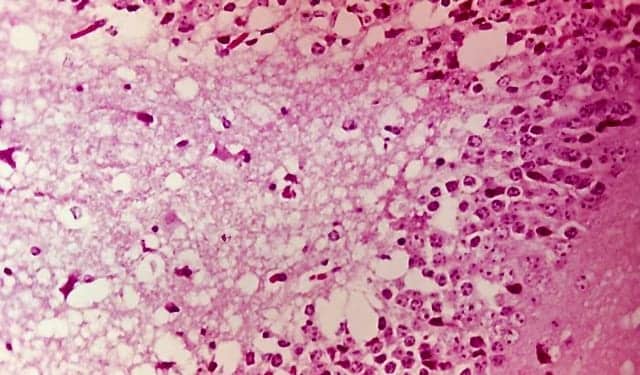Aalto Bio Reagents, Dublin, Ireland, has launched the first commercially available protein for the detection and diagnosis of Venezuela equine encephalitis NSP2 TC83. The team at Aalto Bio Reagents believes its new protein will help further the development of a more mainstream vaccine that will give greater or full immunization to vaccine candidates and allow faster in-field diagnosis of the virus.
Venezuela equine encephalitis virus (VEEV) is a mosquito-borne viral pathogen that causes Venezuela equine encephalitis or encephalomyelitis (VEE). VEE can affect humans as well as animals, causing flu-like symptoms and headaches in healthy people, but VEEV infection may lead to serious illness and death in young, elderly, and immunocompromised patients.
“This new VEEV NSP2 TC83 protein enables our customers to bring superior, differentiating diagnostic end-products to market faster, which will enable faster diagnosis, identification, and treatment of these deadly viruses,” says Philip Noone, CEO of Aalto Bio Reagents.
The virus that causes VEE is spread mainly by mosquitos. The virus can spread very quickly, dependent on the subtype of VEE that is transmitted and the density of the mosquito populations near an outbreak region. Enzoonotic subtypes of VEE are endemic to certain geographical areas.
VEEV was first isolated in 1938, and to date there have been 21 reported outbreaks in the Americas, including events in Columbia, Mexico, the United States, and Venezuela. VEE normally occurs after periods of long precipitation that cause mosquito populations to soar.
One of the largest outbreaks of the virus occurred in Columbia in 1995, with 14,156 human cases and more than 26 reported deaths. Factors that precipitated that outbreak include a large level of rainfall that season as well as deforestation, which caused a change in the mosquito species: Aedes taeniorhynchus mosquitos, which prefer to feed on equine populations, replaced Culex taenopius, which prefer to feed on rodents.
There is an inactivated vaccine available for animals, primarily used in horses, which contains the C84 strain of VEEV. Another rudimentary vaccine for use in people contains the TC83 strain and is only used to date on military and lab personnel. However, clinicians have found that the vaccine does have side effects and does not fully immunize the patient.
For further information, visit Aalto Bio Reagents.
Featured image: Microphotograph of the Venezuela equine encephalitis virus courtesy Aalto Bio Reagents.






